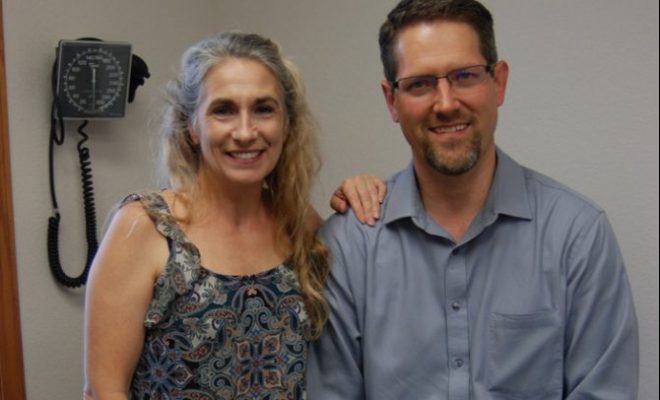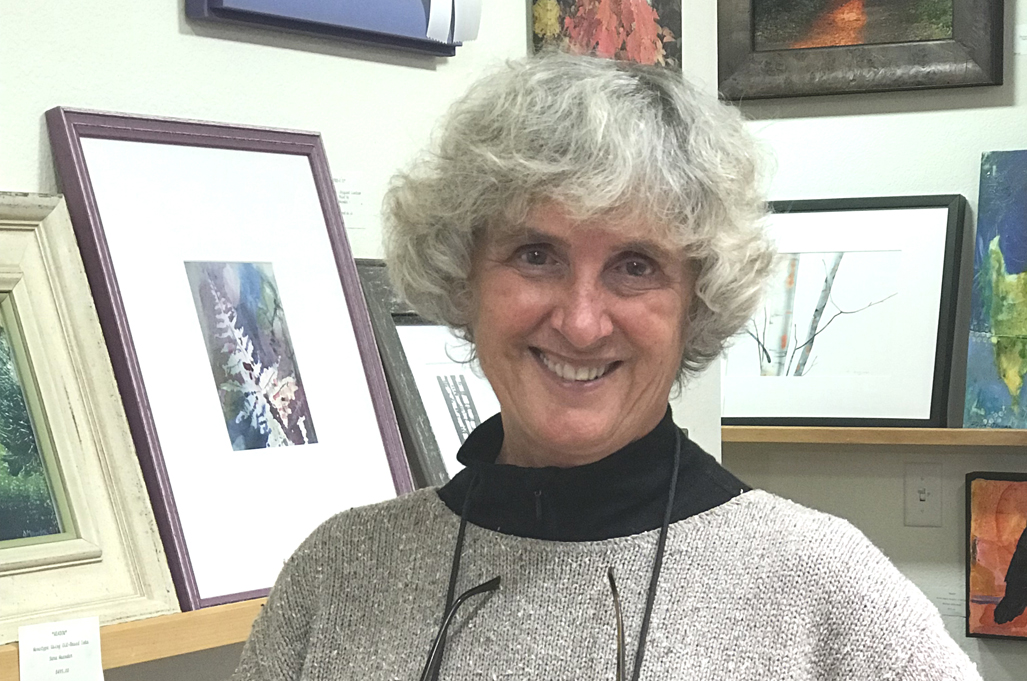Models of value-based healthcare: transforming Northwoods patients into savvy consumers

Models of value-based healthcare: transforming Northwoods patients into savvy consumers
By Lori Adler
Almost everyone, from doctors to scientists to researchers, agrees: healthcare in the United States is in a state of crisis. Politicians have been using healthcare as a major part of their platforms for many years. A survey of over 3,500 people conducted by Gallup and West Health earlier this year shows that it is on the minds of Americans as well. Over three-quarters of the respondents said rising healthcare costs could cause long-term damage to the U.S. economy; two-third of those same people also said it is unlikely that the government can solve the problem.
Expansion of the Affordable Care Act (Obamacare), Medicare for all, and single-payer systems are all popular topics but there is a new concept emerging. It’s an idea of value-based healthcare. In it, patients, as consumers of healthcare take responsibility for selecting healthcare providers based upon outcomes and costs, through a supply-and-demand atmosphere.
In the Northwoods, husband and wife physicians Dr. Brian and Dr. Kim Erdmann have been operating a small primary care practice with a value-based mindset for three years.
Priority Medical Partners in Rhinelander grew out of the frustration experienced by the Erdmanns in the traditional medical clinic setting. Wanting to care for a smaller group of patients and spend more time with them was the driving force of the clinic’s development. This idea, however, meant breaking away from the corporate setting and large insurers where doctors are mandated on all aspects of patient care.
This hybrid-style clinic, the first of its kind in Wisconsin, offers options for insurance, direct pay or primary care memberships. The memberships today cost from $15-$79 per month, depending on patient age. The clinic accepts insurance, though the majority of patients are either direct pay or membership. Brian Erdmann said his clinic offers an alternative to the typical clinic visit by bringing “freedom of choice” to patients.
Clinics like Priority Medical Partners can be seen around the country and are becoming more popular. According to an article in the Journal of General Internal Medicine (2016), patients are starting to demand a more active role in their own healthcare choices, are expecting more convenient options and doctors who are more responsive to their personal needs. A desire for better access to physicians and more time spent with their doctors are top on patient wishlists. On average, a patient visit at a large multi-physician corporate healthcare clinic is just 15 minutes; only eight of which are spent with the doctor.
Erdmann placed blame for the short face time with patients on insurance companies he said dictate the amount of time spent with patients and determine testing and other procedures that should be allowed.
The Erdmann’s clinic provides basic services such as annual physicals and immediate care needs such as treatment for colds and flu, sprains and strains and cuts and stitches. The clinic is contracted with other providers to allow for low-cost options for additional services, such as lab work, and Erdmann said he is able to negotiate rates on higher cost tests, surgeries and other procedures.
Patient demands
Patient demands also include better overall care. Practices which better address the needs and wants of the patient, including better care, are popping up all across the country in the form of retail clinics, direct primary care providers, cash-only doctors and online care.
Rhinelander dermotologist Dr. Robert Aylesworth is one such physician offering and “out-of-the-box” solution for patients. Aylesworth, one of only a handful of dermatologists in the Northwoods, offers the standard wide range of services, but also the convenience of telemedicine for his patients who are unable to make the drive to his office. For a flat rate of $59, a patient creates an account, answers questions about symptoms, uploads photos of the affected area. Usually within 24 hours, the patient receives a personalized treatment plan and if needed, a prescription.
Non-traditional health care providers
A growing number of physicians are rejecting the traditional model of care for those that not only allow more time with the patient, but less time with the paperwork associated with insurance claims.
Eliminating time spent on filing insurance claims, Erdmann said, along with having a small office consisting of four exam rooms and low overhead with only one additional staff member allows the clinic to save its patients a significant amount of money. Direct pay patients can expect a savings of approximately 50% of what would have been billed to the insurance provider. Other health care providers report similar or more in patient savings.
Chiropractor Dr. Tony Lowenberg also works to keep his overhead low. He is able to charge his patients a flat rate of $20 cash per visit, he said, because of his small location and simple lifestyle. Referring to himself as “the working man’s chiropractor,” Lowenberg said that insurance is the main reason for rising healthcare costs in the U.S., because, “It removes free market.” When consumers are responsible for paying for services, Lowenberg continued, the price drops; lower prices are a direct result of a free market system. It’s a system he said is working for his business, adding that by offering “quality service at a fair price, people will come back.”
The Drs. Erdmann, Aylesworth and Lowenberg are examples of different ways that providers can break the mold of traditional health care. One striking similarity, however, is that all three said the answer to the current healthcare crisis centers around patients taking more responsilibity for their health and their care, including becoming more knowledgeable of their options and the associated costs.
The idea of being more in control of healthcare options and knowingly selecting providers and services that offer the best value may be enticing, but may be easier said than done. In a 2018 survery conducted by Kaiser Family Foundation and the Los Angeles Times, two-thirds of the respondents said it was difficult to find out how much medical treatments were going to cost and four in ten people surveyed stated they had great difficulty in determining how much the out-of-pocket cost would be.
Price transparency is a key element of the Erdmann’s practice. A benefit of enrolling in Priority Medical Partners’ direct care membership is that patients are informed in advance of the price of the visit or procedure. For the monthly cost, patients are covered for services provided at the clinic, phone and online visits.
Aylesworth, who accepts insurance, Medicare, Medicaide and the health care credit card, Care Credit, also maintains a completely separate fee schedule for cash patients.*
When consumers are responsible for paying for services, Lowenberg said, the price drops. Lower prices are a direct result of a free market system. This system, he said, is working for his business, adding that by offering “quality service at a fair price, people will come back.”
In January of this year, President Donald Trump issued an executive order on price transparency in health care. The order stated that hospitals must post pricing on their websites and drug companies must include list prices in their advertisements. However, being an executive order and not a law, many parts are being challenged in court.
What is the answer?
Erdman said the answer to the health care crisis involves removing barriers to quality healthcare, such as access to physicians, cost reductions and patient choice. He also said he firmly believes in the idea of free market health care.
Reigning in costs is the best way to combat America’s healthcare crisis, Aylesworth maintains. He said patients can help keep costs in line by being aware of pricing and then perhaps choosing less expensive options if available. Even those with insurance should be conscious of pricing, he added. The government, Aylesworth said, cannot resolve the American health care situation, especially with a single-payer system.
Chiropractor Lowenberg said socialized medicine would make health care worse, but an incentivized system where people who make better lifestyle choices are rewarded with better rates might be the answer. Using car insurance as an example to make his point, Dr. Lowenberg explained that car insurance covers accidents, not normal wear and tear, so health insurance, he said, should be mainly for things like hospitalizations. People, therefore, should be responsible for their everyday care and normal wear and tear. People, he said, should pay out of pocket for the everyday things, adding, “When you pay, you take better care of yourself.”
Studies indicate people are trying to take more control of their healthcare, and it is evident in much of the research done in the past few years. In the same Kaiser Family Foundation/LA Times survey, seven in ten people reported an attempt at cost savings. Most of the attempts was requesting generic drugs over name brands, but 17% stated they had selected providers based upon procedure cost, and 9% had engaged in negotiations with providers for lower prices.
Though slow, it appears progress is being made. By breaking the molds of traditional health care, both patients and physicians are making strides toward taking back control and working to curb ever-increasing costs associated with American health care.
“It feels good every day knowing that I’m doing this,” Erdmann said, adding that he and his wife want to “provide health care at fair market prices.”
*Being a Medicare provider, federal law prevents Aylesworth from charging a cash patient less than what Medicare will pay.
SPOTLIGHT

Drs. Brian and Kim Erdmann of Priority Medical Partners
Priority Medical Partners: Drs. Brian and Kim Erdmann
For the past three years, Drs. Brian and Kim Erdmann have been operating a small primary care practice in Rhinelander. Priority Medical Partners grew out of the frustration experienced by the Erdmanns in the traditional medical clinic setting.
- Breaking away from the corporate setting and large insurers, Brian Erdmann says, allows them to provide better care for a smaller group of patients.
- Brings “freedom of choice” to health care by creating a practice that is the first-of-its-kind in Wisconsin; a hybrid-style clinic which offers options for insurance, direct pay or a primary care membership. The clinic accepts insurance, but most patients pay direct or are part of the direct primary care membership the clinic which allows for unlimited access to the clinic and covers any services provided at the clinic at no additional cost.
- Direct pay patients, who pay upfront for services, can expect a savings of approximately 50% of what would have been billed to the insurance provider. Direct pay patients are informed in advance of the price of the visit or procedure as price transparency is a key element of the Erdmanns’ practice.
- All patients are provided same-day or next-day appointments. The clinic provides basic services; for services outside of the clinic, other providers are contracted to allow for inexpensive options for patients. In addition, if a serious need arises, the Erdmanns are able to negotiate rates on normally expensive tests, surgeries and other procedures.
- Has a goal of providing health care at fair market prices. Erdmann said he believes the answer to America’s health care crisis involves removing barriers to quality healthcare, such as access to physicians, cost reductions, and patient choice.
SPOTLIGHT

Dr. Robert Aylesworth, Aylesworth Dermatology
Aylesworth Dermatology: Dr. Robert Aylesworth
Dr. Robert Aylesworth has been practicing dermatology in the Northwoods since 1982.
- Provides care for a wide range of skin, hair and nail problems from psoriasis to hair loss to nail fungus. Aylesworth Dermatology also provides cosmetic services such as chemical peels and Botox injections. In addition, Dr. Aylesworth is certified in MOHS surgery, a precise surgical technique for skin cancer where cancer-filled skin is removed layer by layer until no cancer remains.
- Offers telemedicine option by being part of a network of licensed dermatologists who provide online dermatology visits. A patient creates an account, answers questions about symptoms, uploads photos of the affected area, and receives a personalized treatment plan and if needed, a prescription from an Aylesworth staff member usually within 24 hours. The fee for this service is a flat rate of $59. With this service, Dr. Aylesworth offers convenience for those who don’t want to travel or have an urgent need.
- Believes in keeping business local and points out that, though physicians at the area’s large clinics often live in the community, the corporation itself is located out of town. These corporations, he said, do not have as much of a vested interest in the local community, adding that it is important to use local providers; “We are the community.”
- Maintains that reigning in costs is the best way to combat America’s healthcare crisis. Patients he said, can help keep costs in line by being conscious of pricing, even those with insurance, and choosing a less expensive option when available.
SPOTLIGHT

Dr. Tony Lowenberg, chiropractor
Dr. Tony Lowenberg, chiropractor
A chiropractor for 14 years, Dr. Tony Lowenberg opened his practice in Rhinelander in 2016. Frustrated with the hours of work required to file insurance claims, Dr. Lowenberg’s clinic operates strictly on a cash basis.
- Keeps his overhead low with a small location, consisting of a waiting room and an exam room with no additional staff; leads a simple lifestyle that keeps his income needs low as well. As a result, Dr. Lowenberg charges a flat rate of $20 per visit.
- Refers to himself as “the working man’s chiropractor.” Says that insurance is the main reason for rising healthcare costs in the U.S., noting, “It removes free market.” When consumers are responsible for paying for services, Dr. Lowenberg explains, the price drops. Lower prices are a direct result of a free market system. This system, he feels, is working for his business, adding that by offering “quality service at a fair price, people will come back.”
- Believes people need to be more responsible for their own health. People should pay out of pocket for the everyday things, he said, adding, “When you pay, you take better care of yourself.”
- Being healthy has become “bad for business,” because right now, insurance companies and big corporations are in charge.
- Says people will make choices based upon their experience, and if a physician offers a good service at an affordable price, the business will do well.
Leave a reply
You must be logged in to post a comment.






